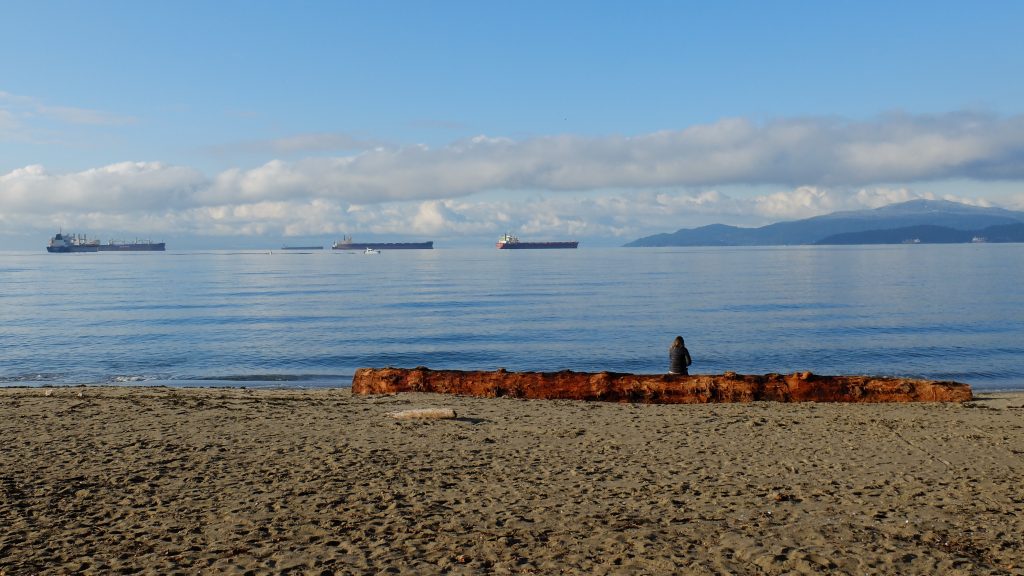Indigenous knowledge has defined and protected the health of our coastal waters since time immemorial, and today re-establishment is needed to navigate the conversations and ideas around adaptation to sea level rise.

This decolonized approach is at the centre of the City of Vancouver’s Sea2City Design Challenge (Sea2City), which is exploring solutions for urban development and ecological revitalization in the False Creek floodplain.
“Decolonizing the Shoreline” brings Chief Dr. Frank Brown, Christine Smith-Martin, Joanne Nelson, and Sea2City Cultural Advisor Cory Douglas together in dialogue regarding the significant and recent initiatives Coastal First Nations have championed for shoreline health and provide insights for the City of Vancouver to learn through Sea2City.
Date: Wednesday June 22, 2022
Time: 12 noon to 1:15 pm Pacific Time
You can register by clicking this link.
Highlights from the upcoming Sacred Journey exhibition at Science World on July 15, 2022 will be shared, we will hear about the success of the Indigenous Guardians across the country, and discuss why the Fisheries Resources Reconciliation Agreement is so ground-breaking. Ginger Gosnell-Myers will moderate as we explore these efforts and how it impacts shoreline planning.
About the Sea2City Design Challenge
A first-of-its-kind in Canada, the City of Vancouver Sea2City Design Challenge is bringing together two multidisciplinary teams to explore solutions to inform a framework and vision to guide urban development and ecological revitalization in the False Creek floodplain. The project will also help support the next phase of the City’s Climate Adaptation plan and Vancouver Plan.
About SFU’s Morris J. Wosk Centre for Dialogue
SFU’s Morris J. Wosk Centre for Dialogue creates real-world impact for society’s most pressing challenges by using dialogue and engagement to co-create solutions, exchange knowledge, support community-engaged learning and build the capacity of others in the knowledge and practice of dialogue.

Speakers:
Chief Dr. Frank Brown
Frank Brown is a member of the Heiltsuk Nation from Bella Bella. His Hereditary Chiefs-Yím̓ ás name is λáλíya̓ sila meaning “preparing for the largest potlatch.” Brown is an adjunct professor in resource and environmental management at Simon Fraser University. He is also executive producer and co-curator of the Sacred Journey traveling exhibition. He recently received an Honorary Doctorate of Laws from Vancouver Island University and is a BMO Indigenous Advisory Council member. Brown is a leader in the Pacific coast-wide ocean-going Indigenous canoe resurgence and served as initiator and events planner for the Tribal Journeys to Bella Bella in 1993 and 2014. Brown was the founding director of the Heiltsuk Integrated Resource Management Department and director of Land and Marine Stewardship for the Coastal First Nations – Great Bear Initiative. He co-developed and is implementing an Aboriginal Eco-Tourism training program with the Heiltsuk Tribal Council, Vancouver Island University and North Island College. He also supported the development of an Indigenous Guardians training program with Coastal First Nations – Great Bear Initiative and Vancouver Island University.
Christine Smith-Martin
Christine Smith-Martin is the CEO of Coastal First Nations – Great Bear Initiative, and whose focus is on restoring and protecting one of the world’s largest remaining temperate rainforest systems – The Great Bear Rainforest – while defending the communities whose culture, language and livelihoods are inseparable from it. Christine was previously Executive Director of the Vancouver Aboriginal Transformative Justice Services, and has a long track record of partnering with conservation groups, as well as national and global advocates working to address climate change, salmon conservation and the UN Declaration on the Rights of Indigenous peoples. Christine is a member of the Haida Nation and Lax Kw’alaams community.
Cory Douglas
Cory Douglas was born and raised in Coast Salish Territory ‘Vancouver’, and brings over 25 years of local experience in art and architectural design. He is a Squamish Nation member with Haida and Tsimshian ancestry. Cory began his business, Modern Formline Design as a graphic artist and continues to redefine himself as he merges his academic architectural vocation with his innate creativity. Cory is connected to the Squamish Nation through his parents and has been studying traditional Haida form, Formline, and Coast Salish design. Cory’s work within the architecture and public art fields demonstrates how to meaningfully celebrate Indigenous culture throughout major development and design projects using decolonial strategies. Cory is currently a Cultural Advisor for the City of Vancouver’s Sea2City Design Competition.
Joanne Nelson
Joanne Nelson is a Ts’msyen woman who grew up in the northwestern BC communities of Port Edward and Prince Rupert where she gained a tremendous appreciation for nature, in particular the ocean environment. She is from Lax Kw’alaams on her mother’s side and Kitsumkalum on her father’s side. Her passions include traditional Ts’msyen art forms as well as paddle sports such as dragon boat and outrigger canoe. She is a PhD student with IRES and is looking forward to conducting meaningful research with First Nations communities that favour Indigenous Ways of Knowing and traditional knowledge.
Moderator:
Ginger Gosnell-Myers
Ginger Gosnell-Myers, from the Nisga’a and Kwakwak’awakw Nations is passionate about advancing Indigenous rights and knowledge through public policy and engagement processes. Truth is the pathway to reconciliation, and her award-winning projects have broken down barriers while co-creating new approaches for systemic change. In November 2019, Ginger was appointed as the first Indigenous Fellow with the Simon Fraser University Morris J. Wosk Centre for Dialogue. Ginger’s fellowship focuses on Decolonization and Urban Indigenous Policy and Planning, and builds upon the 20+ years she has in this field.













will this session be recorded?